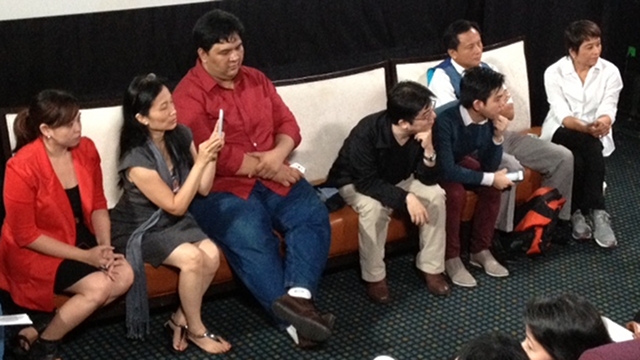SUMMARY
This is AI generated summarization, which may have errors. For context, always refer to the full article.

MANILA, Philippines – The government should step up to protect Filipino “super citizens” who, through cyberspace, slam politicians and help their disaster-stricken countrymen, said a panelist at a netizens’ summit Saturday, September 22.
This is needed at a time when the tweet, in the words of another panelist at the Social Good Summit Manila 2012, has become “mightier than the sword.”
The Philippine government, in particular, needs to legislate a Magna Carta for Netizens, said Pipol Power Institute executive director Nina Terol-Zialcita at the summit organized by Rappler and Tweetup Manila.
In an interview, Zialcita told Rappler that various netizens have drafted a proposed Magna Carta, and will consult legal experts and legislators about this. She said the law would “protect netizens’ rights” and provide a framework “upon which we should guide how we regulate ourselves.”
“We feel that as netizens, we have a tool in our hands that is very powerful. We have to learn to use it responsibly. We want our freedom. We want to be able to act and share information in a certain way. We want to be able to deliver information in a certain way. But we also recognize that we also have a responsibility,” Zialcita explained.
The draft Magna Carta – a document about a sector’s basic rights – contains provisions on protecting freedom of speech and parameters involving this. This is now a contentious issue, especially after President Benigno Aquino III signed the Cybercrime Protection Act of 2012 that penalizes online libel.
Zialcita acknowledged that existing laws already protect freedom of speech. She said a Magna Carta, however, would streamline laws related to this.
“Our legal framework has been very slow in catching up with the evolution of technology. We feel that a Magna Carta will be able to consolidate the different principles. We don’t have to redefine the wheel but there’s a need to make sure that everything is nicely housed in one piece of legislation,” she said.
In her 10-minute speech, Zialcita said social media has transformed Filipinos into “super citizens.” A super citizen is someone “who has broken traditional gatekeeping and power barriers, demonstrating capabilities once limited to the state, media, and other powers that be,” she said.
‘Mightier’ tweets
At the summit, participants emphasized the power of social media to make officials accountable, as in the “anti-epal” campaign against politicians who advertise their achievements through billboard and other means.
“The tweet is mightier than the sword,” said Blogwatch contributor and citizen advocate Jane Uymatiao in her speech.
Uymatiao suggested 5 means for citizens to “create change” through cyberspace:
- Know what to follow e.g. government agencies, local government units, media organizations, legislators, news personalities, celebrities
- Don’t be afraid to engage a known personality
- Follow the burning issues, learn from the experts or those in the know, share your own expertise
- Learn to disagree agreeably
- Persevere in your advocacy. It works!
The Social Good Summit, which is ongoing as of posting time, featured speakers from various media organizations in its first session. Those who spoke included TV5’s Carlo Ople, Inquirer.net’s JV Rufino, Rappler’s Michael Josh Villanueva, GMA-7’s Howie Severino, and ABS-CBN’s Ces Drilon.
Rappler is livestreaming the event on its homepage. Those who want to get updates through Twitter, or give feedback, may do so through the hashtag #iPHLgood.
The Social Good Summit is part of a Mashable-initiated global movement to coincide with United Nations Week. – Rappler.com
Add a comment
How does this make you feel?
There are no comments yet. Add your comment to start the conversation.